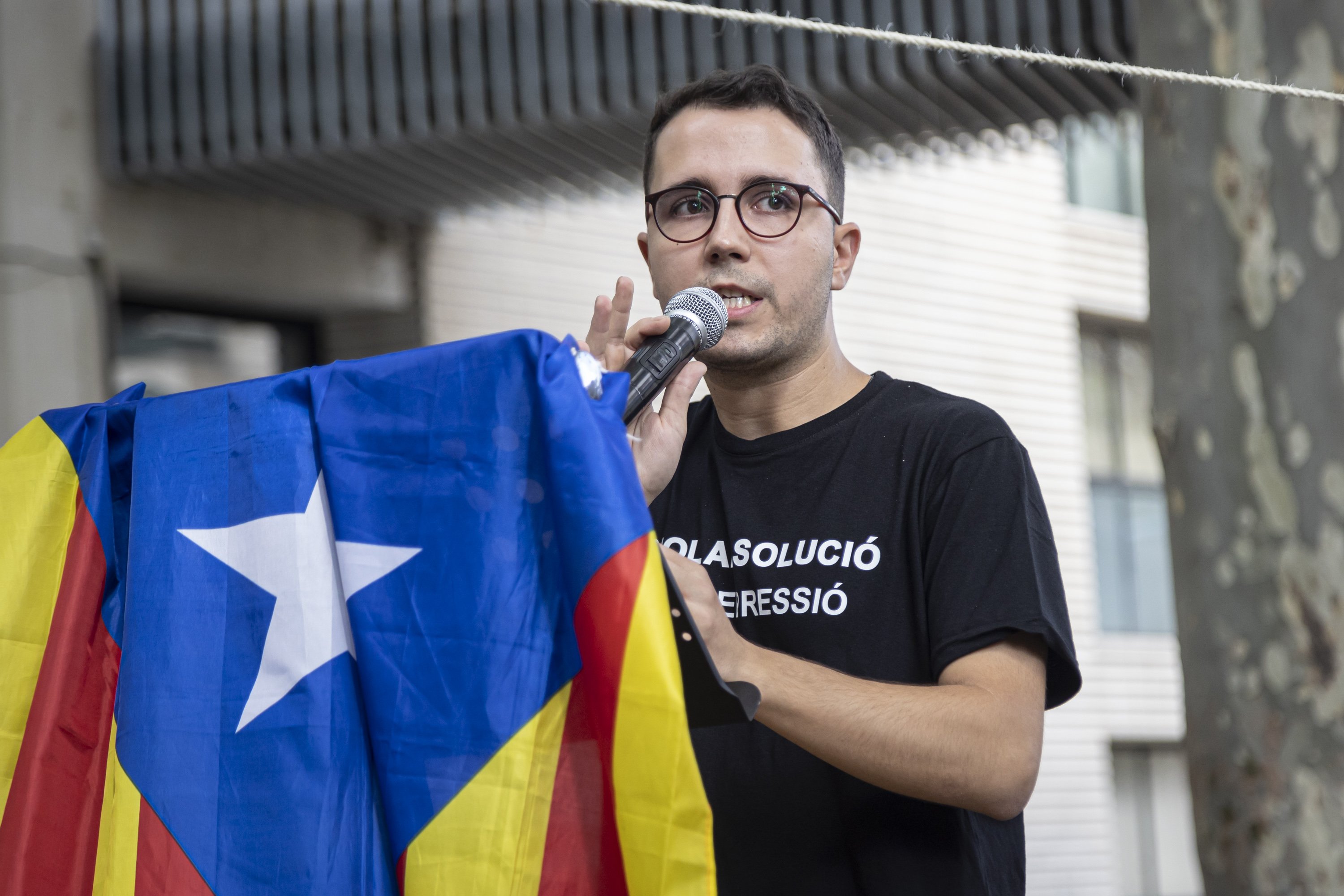The Catalan High Court (TSJC) has reduced a convicted pro-independence protester's jail sentence from more than 4 years to 18 months, thus enabling him to avoid serving time in prison. Oriol Calvo had been sentenced by the Barcelona Audience to four years and one month for alleged incidents that took place on October 15th, 2019 when he was protesting against the jailing of the nine Catalan pro-independence leaders for sedition and misuse of public funds. But on appeal, his sentence has been reduced to one year and six months, and since first offenders can avoid serving sentences of less than two years, Calvo will now avoid prison.
This was announced by the Alonso-Cuevillas law firm. They state that the appeal court, the TSJC, acquitted Calvo of the crime of aggravated assault of a police officer, despite maintaining the conviction for public disorder, which entails a year and a half in prison. At the same time, the appeal court forced him to pay half of the costs of the case. At the same time, the judges dismissed an appeal in the opposite direction presented by the prosecution, requesting that Calvo's sentence be increased to eight years.
Oriol Calvo's sentence, the highest
Until today, Calvo's sentence was the longest jail term ordered for any activist at a pro-independence protest. In the appeal to the TSJC, Calvo's lawyer stated that, in the verdict, the Barcelona Audience court accepted "in an uncritical manner" the version of two Mossos d'Esquadra police officers, who, in addition, provided the only evidence on which the conviction was based, therefore "violating the right to the presumption of innocence" of the young man. It added that the sentence also violated Calvo's right to a defence, because the prosecution accused him of one type of criminal offence and the court applied another. In addition, it complained that the verdict did not detail the reasons why it was "unbelievable" that Calvo stated at the trial that on the night of October 15th, 2019 he was at the protest at the intersection of Passeig de Gràcia with Carrer Mallorca, but that he was protesting peacefully.
Regarding the evidence, the defence stated that jurisprudence requires that if the witnesses who testify are not themselves victims - as was the case with the two officers - further objective evidence is needed to be able to convict a person. The two riot squad officers testified at the trial that they saw Calvo participating in the riots, throwing stones and blunt objects at police vans, and taking part in the creation of barricades along with about a hundred other people. The young man's lawyer raised the question of how the police were able to affirm that they did not lose sight of him if, at the same time, they explained that they were getting in and out of the vans to remove barricades from different points. For the defence, the officers' account is generic and does not remove Calvo's presumption of innocence. The lawyer also detailed that in the crime of disorder an aggravating factor is applied when there is "relevant conduct", but here such conduct was not detailed, nor were there any action described that were harmful to these agents or the objects, and the defence quotes judgments from the TSJC from 2021 and this year that include this jurisprudence. The officers did face objects thrown through the air at the protest, but Oriol Calvo's action was not proven, his defence maintained.
L’ Oriol
— Despatx Alonso-Cuevillas Advocats i Economistes (@DespatxACuev) October 2, 2023
Calvo @OAbsolucio,
absolt del delicte d’atemptat.
No haurà d’ingressar a presó.
Gran feina de la nostra companya #MiriamIzquierdo pic.twitter.com/qAkWFFLhRD
Translation of X post:
"Oriol Calvo, acquitted of the crime of assault. He will not have to go to jail. Great work by our colleague #MiriamIzquierdo" - Alonso-Cuevillas Lawyers and Economists

